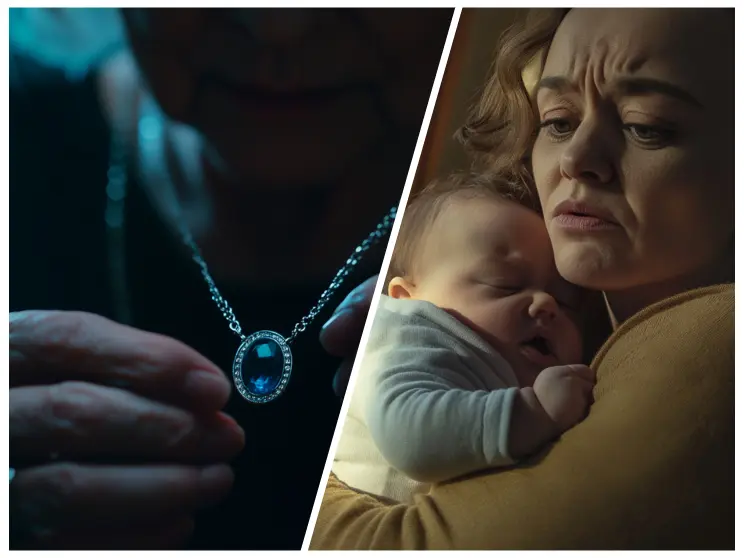Mara’s mornings were always the same—coffee brewing, the low hum of the refrigerator, and the muted chatter of the television in the corner. She liked the comfort of it, the predictable rhythm. In a world that had once spun too fast for her, routine had become her safe harbor.
She carried her mug to the couch, curling her legs under a faded quilt. Outside, the winter rain traced lazy rivers down the window. The news was on, a distant voice filling the quiet. She wasn’t really listening—until the anchor’s tone shifted, brightening with the thrill of breaking discovery.
“A rare piece of jewelry,” the anchor announced, “one of only three known to exist, was spotted last night at a charity gala.” Mara’s eyes flicked up lazily, expecting something glittering and gaudy. The screen changed to a close-up of a silver chain with a deep blue stone.
Her breath caught mid-sip. She leaned forward, coffee cooling in her hands. The camera lingered on the necklace—delicate etchings curling along its frame, the stone glowing under the light. It was impossible, yet there it was. She knew every curve of that pendant, every shadow in that blue.
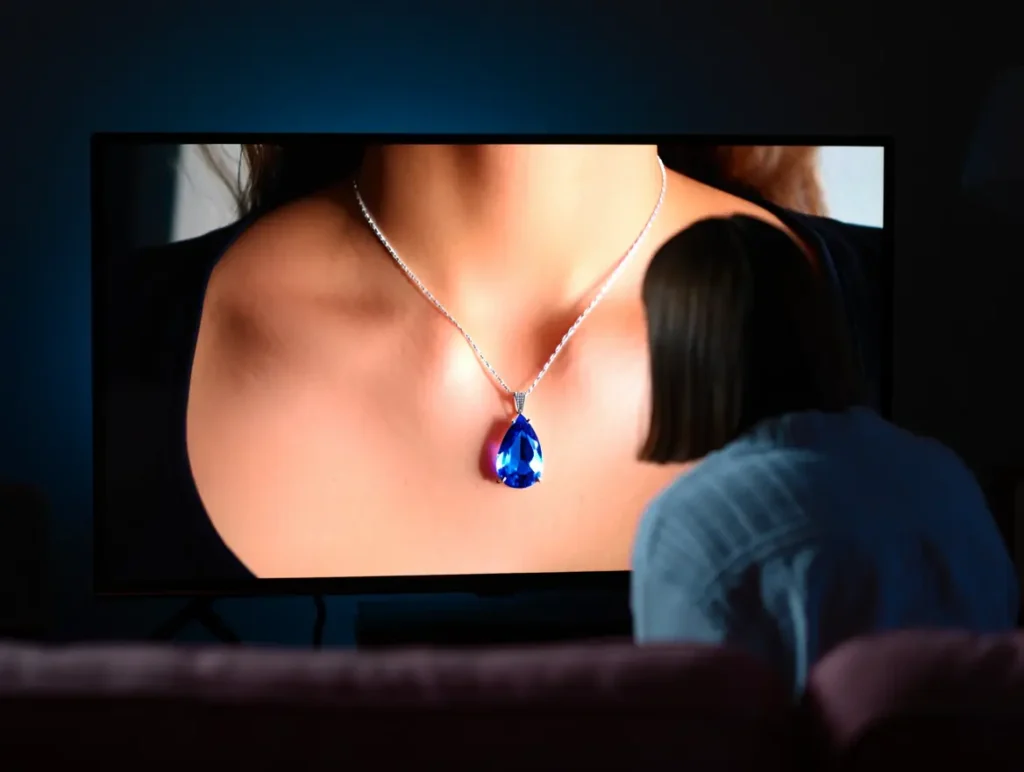
The mug trembled in her grip. It wasn’t just similar—it looked the exact same! The necklace she had once held in the palm of her hand, traced with her thumb, and fastened around… She blinked hard, shaking her head. No. That was years ago. This had to be a copy. Or perhaps, the one on TV is a copy of this…
But the news segment continued, and the details made her skin prickle. The piece had no known sales record, and no trace in jewelry archives. Experts were calling it “priceless,” estimating millions at auction. Mara’s coffee slipped from her fingers, spilling dark liquid across the quilt, but she barely noticed.
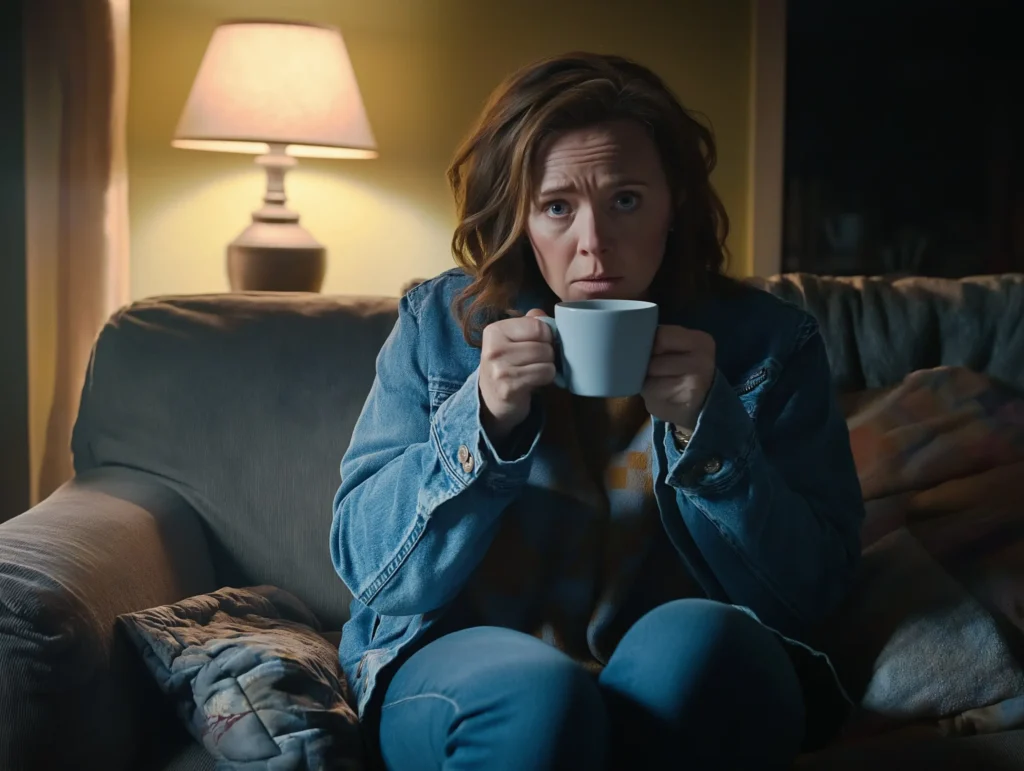
A blurred photograph appeared—a lady at the gala, the pendant glinting against her blue dress. The image was deliberately grained out, her face unrecognizable, but the necklace drew Mara’s gaze like a magnet. She leaned closer, studying the way the light seemed to pool in the stone.
The anchor spoke about the necklace’s mysterious origins, how no living jeweler claimed to have crafted it. Some called it an heirloom of lost royalty, others a miracle of forgotten artistry. The pendant, they said, carried more questions than answers. Mara hadn’t had time to process it all, but her chest felt strangely tight.

She sat frozen, the world outside reduced to rain on glass and the glow of the TV. This couldn’t be a coincidence—not with something so rare. A memory stirred at the edges of her mind, but she pushed it away. She didn’t want to think about where she’d seen it last.
The segment replayed, and again the camera lingered on the swirling silver and deep blue. She found herself leaning in, her breath shallow. It wasn’t just a jewelry piece—it was a puzzle piece she hadn’t realized was missing. And now, it had dropped in her lap without warning.

“The owner has requested privacy,” the anchor said, “and we have honored that wish. What we do know is that the necklace has never before been seen in public—until now.” Mara’s fingers curled against the couch cushion, knuckles whitening as the image flashed once more.
She could have turned off the television, gone back to her quiet day, let the moment pass. But she didn’t—couldn’t. Her gaze stayed locked on that deep blue stone, her pulse a wild drumbeat. Whatever this meant, it wasn’t just another news story anymore.

She muted the TV but kept the image in her mind. That necklace was not a stranger to her. She had owned it once, years ago, back when life was still raw and unformed. The memory pressed against her like a tide she couldn’t hold back.
It was eighteen winters ago, in a cramped apartment that smelled faintly of mildew and boiled pasta. Mara had been nineteen and alone, the kind of alone that gnawed through bone. She had been carrying more than just rent and grocery bills—she had been carrying a life.
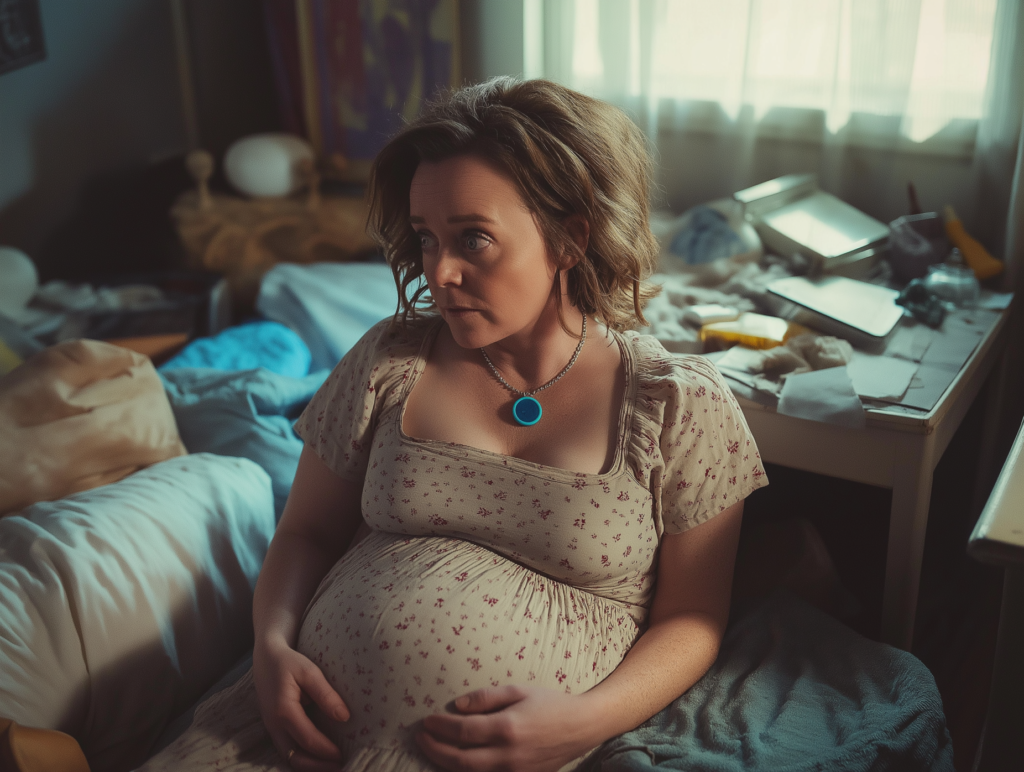
The necklace had been a family heirloom, passed on for generations. Her mother had given it to her a year before she had her baby—when she had turned of age. Her mother had told her the necklace was hardly its worth in weight.
Ever since she could remember, Mara had been drawn to it in her mother’s meager collection—the flash of silver, and the strange depth of the blue stone. It looked alive, like it had its own heartbeat.
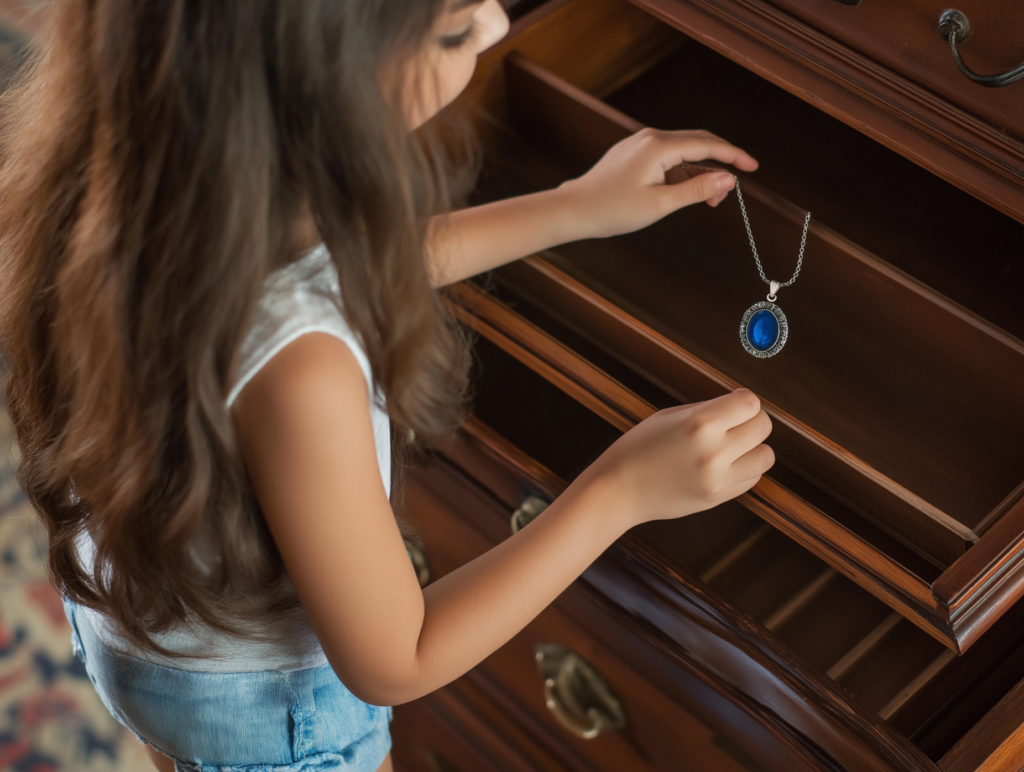
But after her own son’s birth, Mara hadn’t been thinking about value. She had been thinking only of hope—something small and beautiful in a world that felt too heavy. She wore it every day, fingers brushing the pendant whenever worry threatened to pull her under. It was her talisman against the unknown.
But the unknown arrived anyway. Her boyfriend vanished the moment she told him about the pregnancy. Her job at the diner barely covered rent. Even with extra shifts, she was living off instant noodles, watching her stomach grow rounder while cupboards grew barer. The future loomed like a shadow.
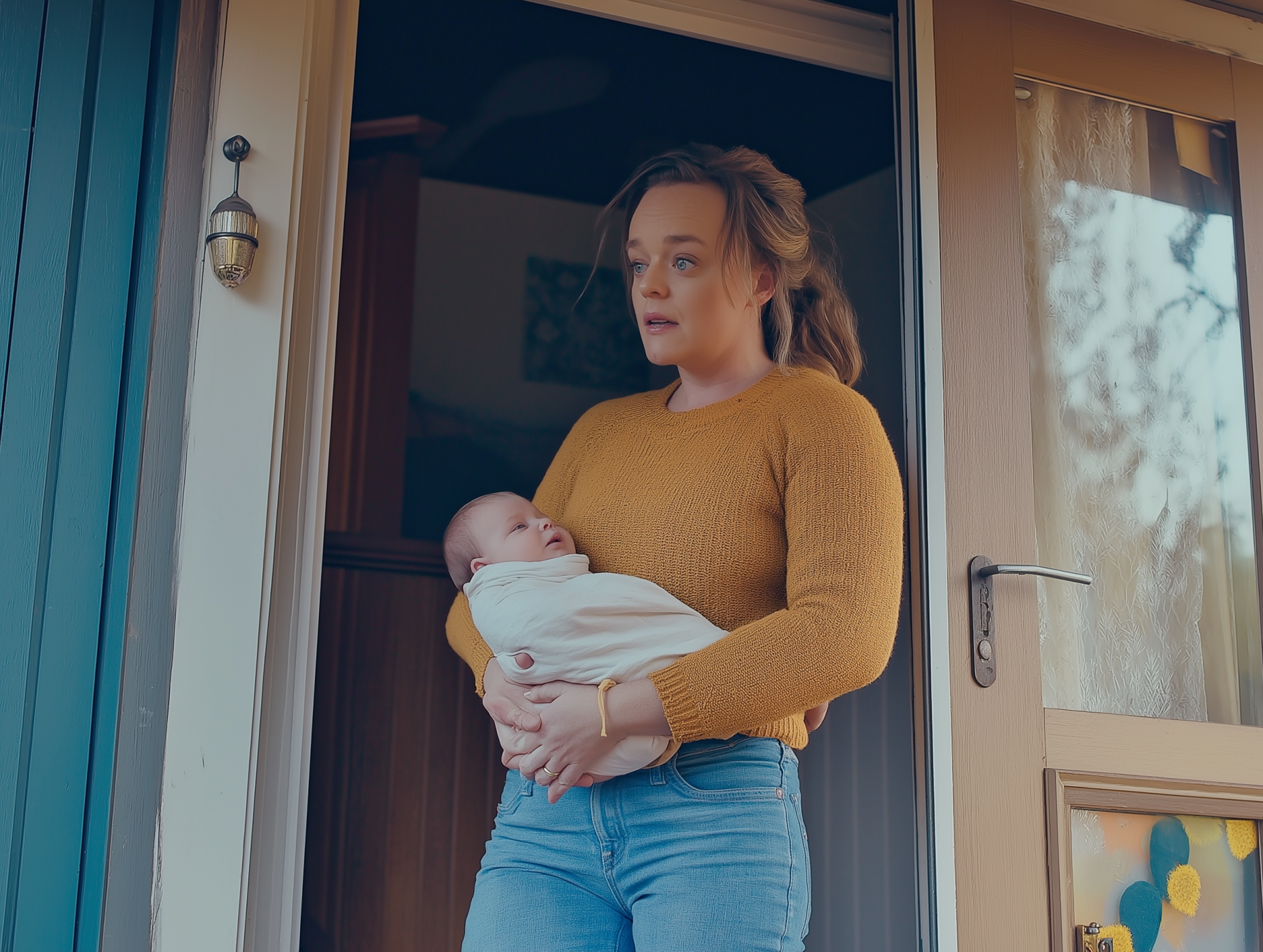
God, the thought of it cut like a knife. She visited food banks, bargained with the landlord, and sold what little she had. But newborns need more than just love—they need everything and a little more. Mara, at nineteen, was quickly running out of everything. The decision she swore she’d never make began to stalk her.
The adoption agency smelled of lemon cleaner and quiet desperation. She filled out the forms with shaking hands, each question slicing her a little deeper. They asked if she wanted to leave something for the baby. Most mothers left blankets, stuffed animals—tokens of a life they could not give, probably. Mara reached for the only thing that held a little worth in her life.
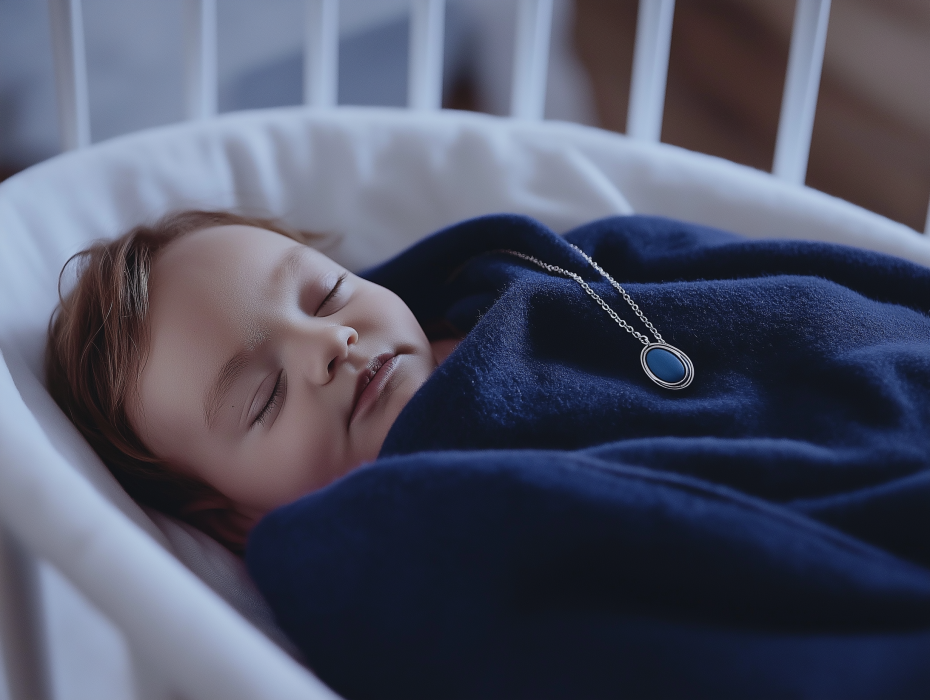
She took off the necklace and held it for a moment. The pendant felt warmer than usual, as though it understood what was happening. She whispered a promise she could barely form—that someday, somehow, she might see it again, and through it, find the child she was losing.
The day she handed him over was the coldest of that winter. He was wrapped in a soft blue blanket, the necklace tucked beneath it. She kissed his forehead once, quickly, before they led her out the side door. She chose to keep no name, or even a photo. Just like that, absence soon enveloped her existence.
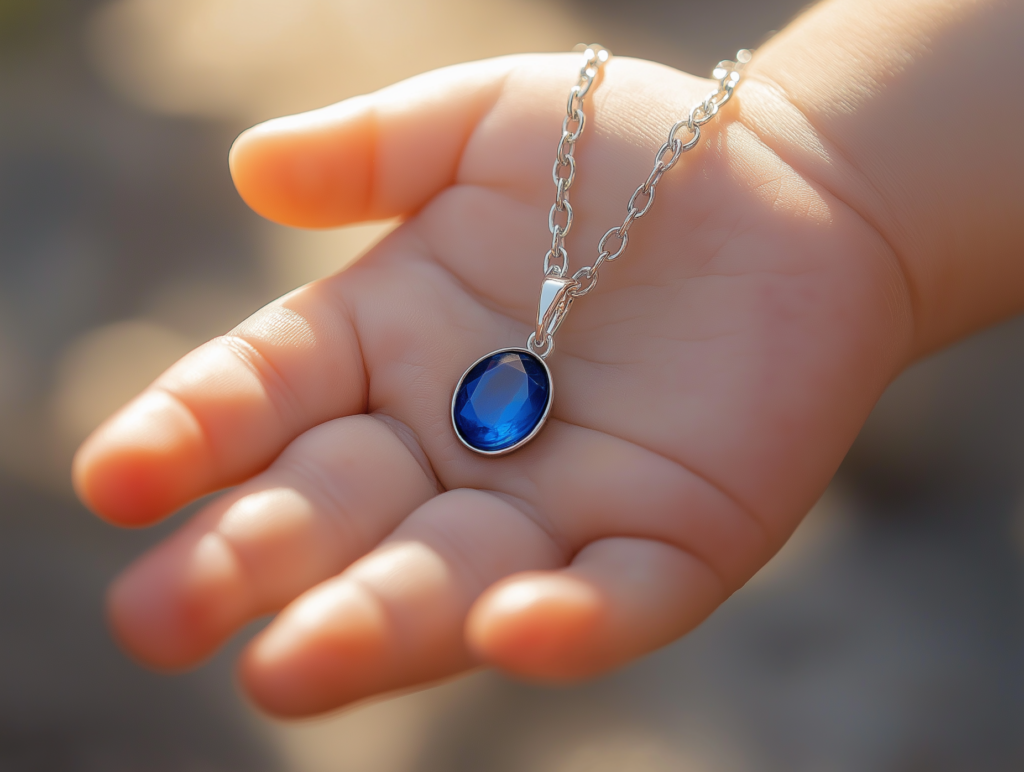
After that, time became something she moved through rather than lived in. She picked up double shifts, moved apartments, and let the years stack up in neat, unfeeling layers. Ever so often, she’d dream of a tiny hand clutching the silver chain, the blue stone glinting in sunlight—a dream that had got murkier with each passing year.
She never searched. She told herself it was for his sake, that he deserved peace without her shadow crossing it. But the truth was much simpler—fear. Fear of rejection. Fear that he might look at her with nothing in his eyes but polite indifference—the woman who had chosen to give away the chance for a miracle.
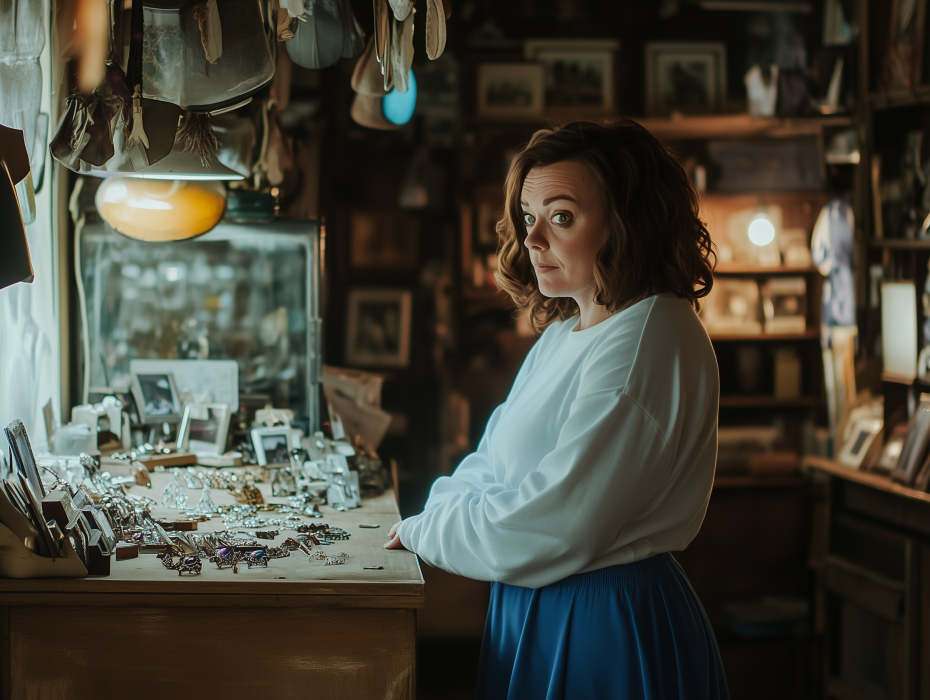
Still, she never stopped glancing at jewelry displays, thrift shop counters, antique market tables—just in case. Part of her believed the necklace was gone forever, swallowed by time. But a more stubborn part insisted it was out there, somewhere, keeping its silent vigil. Perhaps, someone had sold it again, and finding it might lead to—
That stubborn part roared to life tonight, watching the news clip replay. There it was—unchanged, untouched by the years, as though the world had conspired to keep it pristine. But how had it resurfaced? And why now, after all this time? The questions gnawed at her.

She thought about the way the anchor’s voice had trembled with excitement. Millions, they’d said. A fortune. She almost laughed. Back then, she’d thought she was giving him a pretty bauble, maybe something a little sentimental. She hadn’t known she was sending him into the world with more than she had herself.
Her mind wandered to stories surrounding her great grandmother—the original owner of that necklace. She remembered how nobody really knew much about her except for the fact that she was a hardworking woman who had immigrated and kept her family well-fed and knit together as best as she could.
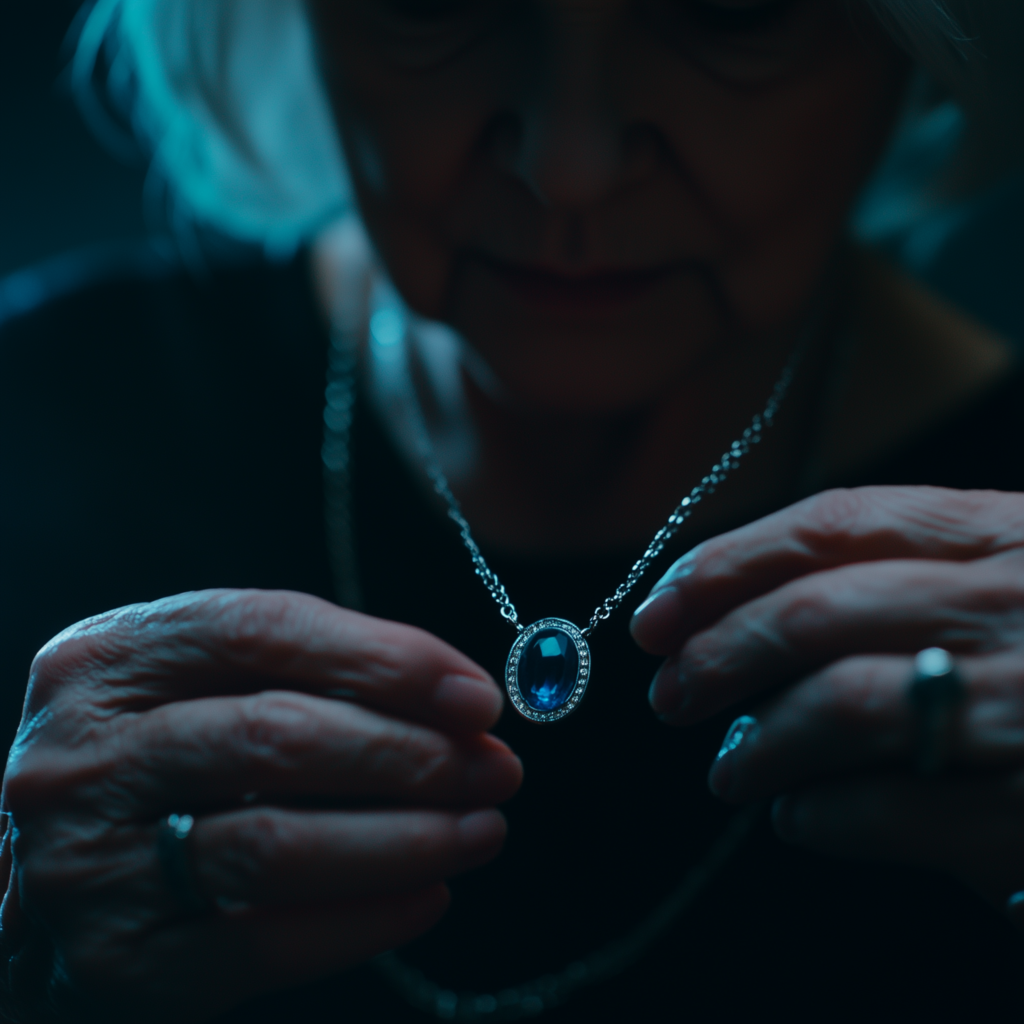
Mara wondered if she might have known about the necklace’s value. Why did her great grandmother hold on to the necklace, if she knew its worth? None of her family members had made it very big in life. Surely, she would have tried to give her sons and daughters a better life if she had known?
Mara caught herself at this pointless train of thought. What did it matter? Regret rose like bile. She remembered herself in the hospital, believing she couldn’t give him the life he deserved. If she had known how much the necklace was worth—would she have made the same decision? Her eyes filled with unshed tears.
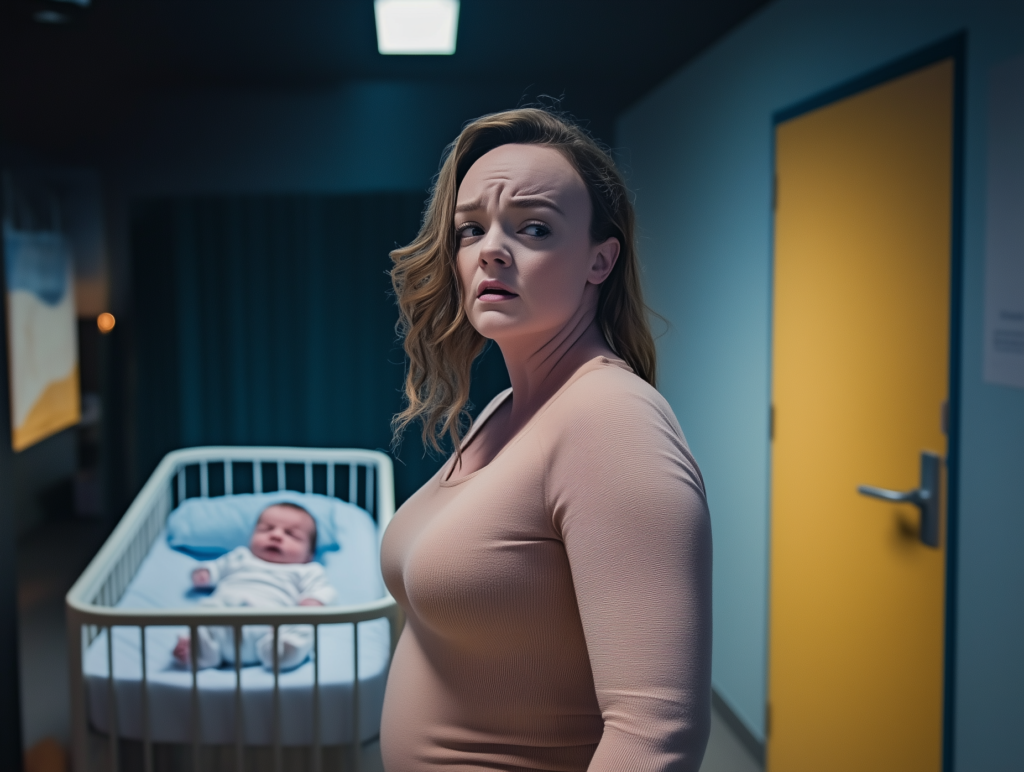
The rain outside strengthened, blurring the city lights into watercolor smudges. Mara shiver despite the quilt, though it had nothing to do with the cold. She could feel the necklace’s weight even now, a ghost against her skin. Could she reclaim it? Or, that greater gift she had parted along with it?
She was halfway through pouring herself another cup of coffee when a thought stopped her cold. The anchor had said it—clear as a bell—but she’d been too focused on the pendant’s gleam to register. “One of only three known to exist.” Three! Her knees nearly gave way beneath her.
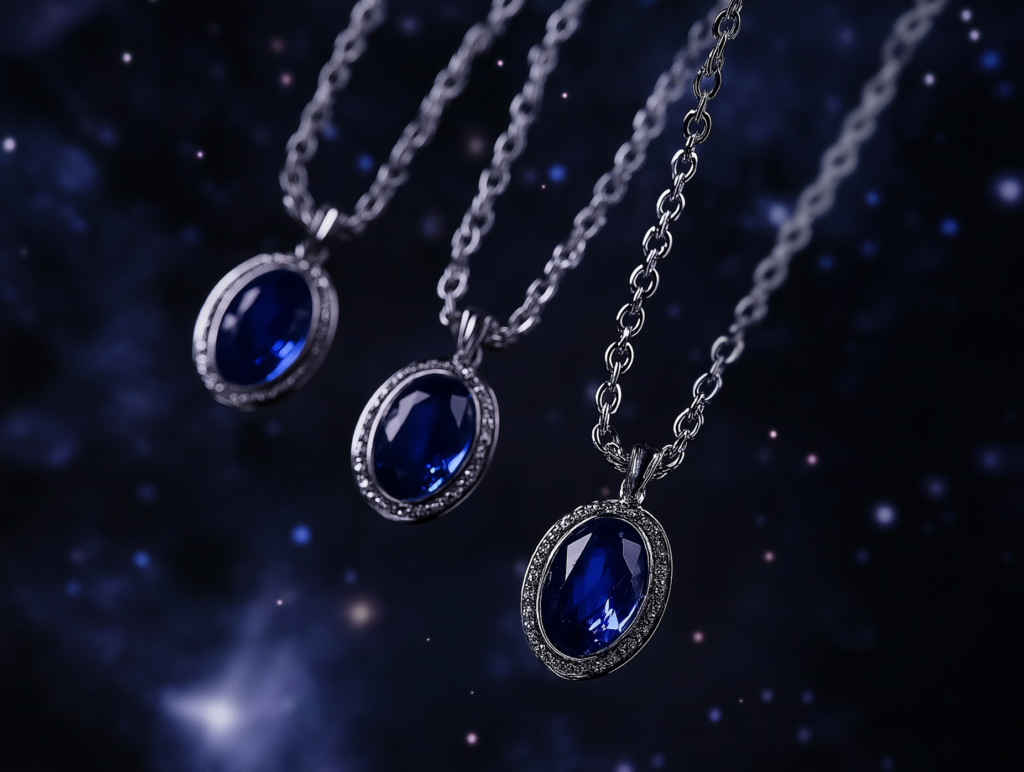
This necklace might not be her necklace. It could be a twin, a sibling piece she’d never known existed. The one she’d owned might still be somewhere else entirely—lost, pawned, stolen. The sudden rush of certainty she’d felt while watching the news crumbled into something jagged and uncertain.
Mara set the coffee pot down with a clatter. Her mind spun. If there were three, tracing one of them didn’t guarantee she’d find hers. She could spend months, years even, following the wrong pendant, chasing a shadow while the real one slipped further from her grasp.
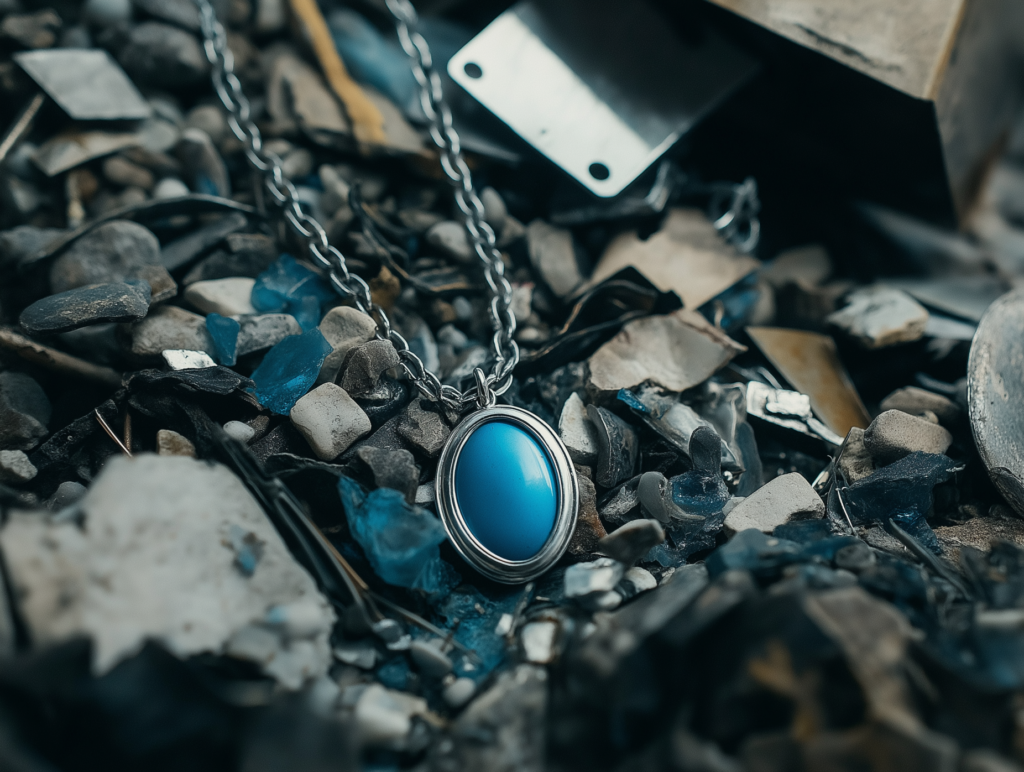
Worse still was the thought she couldn’t push away—that maybe her necklace was gone forever. Sold for rent money. Left behind in a move. Traded for a handful of bills. She pictured it resting in a stranger’s drawer, its story erased, its meaning and value stripped bare.
She thought of dusty auction houses, cluttered estate sales—places where sentiment meant nothing and beauty was just another transaction. It filled her with a hopeless sadness, that quickly turned to anger, and then to quiet despair.

She also felt frantic now thinking that her son should not only be separated from his real mother, but also this heirloom that should be his. What if he had it with him, safe and sound, but he knew nothing of its meaning and value? Just as she had been all those years ago?
That possibility hurt her more than she could imagine. She had let the image on TV pull her into a fragile hope, and now it was unravelling. The thought of starting over, with even fewer clues, made her throat ache.
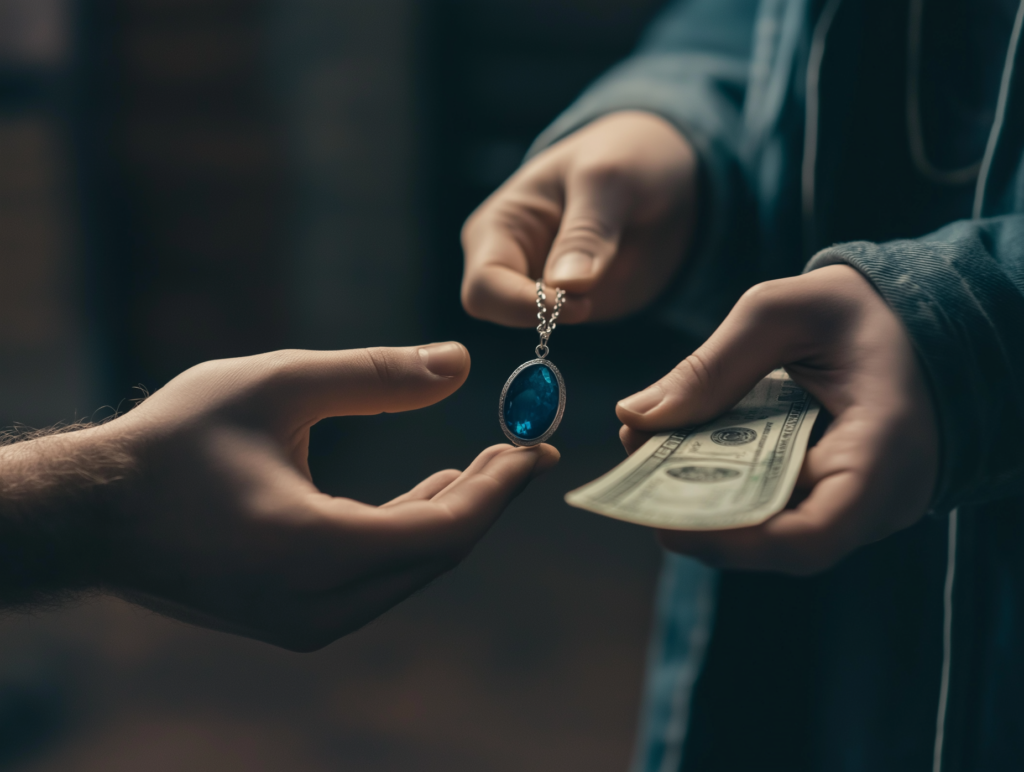
And then came the darker thought—the one that had her gripping the countertop for balance. What if her necklace was gone because her son no longer had it? What if he’d had to give it up, the way she once gave him up?
She imagined him older now, out in the world, carrying none of the protection she’d tried to bestow on him through that pendant. Maybe he’d sold it for school fees, food, or some sudden expense. Maybe he was living on the edge, just like she had been.

The idea gnawed at her. She had given him the only beautiful thing she’d ever owned, not for its price but for the promise it carried. If he no longer had it, had she failed in even that small act of love?
She sat on the couch, staring at the rain-smeared window. In her mind, three identical necklaces floated in different corners of the world. Which one was hers? Which one had been meant to connect them? And what if she never learned the answer?

Her gaze slid back to the paused news frame on her TV. That pendant—hers or not—was the only lead she had. But chasing it now felt riskier. She might be stepping into a labyrinth with no exit, each turn leading further away from the truth.
The anchor’s words replayed in her mind: “One of only three known to exist.” She tried to picture the other two—where they had been all these years, what hands had held them, what stories they carried. Somewhere among them was the one she had left behind.

The more she thought about it, the less she trusted the idea that finding the gala pendant would solve anything. Even if she could track down its owner, it might end in disappointment. She could spend all her strength chasing a pendant that had nothing to do with her.
Yet doing nothing felt impossible. Her necklace—his necklace—was still out there somewhere. Whether it was this one, or in a vault, a shop window, or the bottom of a forgotten box, it carried a thread back to a choice she had never truly made peace with. That thread was the only one she had.

Mara leaned forward, elbows on her knees, the weight of the decision pressing down. She could let the three-necklace mystery become another unsolved chapter in her life, or she could chase it, knowing full well it might lead her nowhere. Neither choice felt like safety anymore. But she needed to do something.
Another sickening thought hit her. What if he had already found out the value of the necklace? That would mean he’s provided for. But wouldn’t that make him hate her all the more—thinking she gave him away even with the means to take care of him? She couldn’t bear the pain any more!

When she calmed down a bit, she consciously brought her mind back to the necklace—that was her only real lead. How had it survived all these years, where had it been hiding? When something you’d lost suddenly reappears, you look closer. Anyone would. At least, that’s what she told herself.
With trembling hands, she carried her laptop to the couch, balancing it beside her now-cold coffee. A quick search for “Boston charity gala blue banner emblem” brought up dozens of images. And there it was—the exact design—on the website of a well-known arts foundation. Her pulse quickened despite herself.

The foundation’s events page confirmed last night’s gala had been theirs. Scrolling through press releases, she found no mention of the necklace or the young man. Still, photographs of the venue matched perfectly. She leaned closer to the screen, the rain outside tapping in sync with her racing heartbeat.
Mara called the hotel that had hosted the event, pretending to be planning a family anniversary. She asked casually about recommended vendors and entertainment. The receptionist politely demurred but mentioned the arts foundation had handled all guest arrangements. It was a breadcrumb, but it was something.

She clicked through the foundation’s “About Us” page, scanning photographs of board members and donors. Their smiles were polished, their biographies littered with corporate titles. Could one of them have invited the necklace’s owner? She bookmarked the list, uncertain what she’d do with it next.
She could call them one by one, but what would they tell her? More importantly, why would they divulge any details of the precious possession? If anything, they would view her with suspicion. No, that would not work, she decided.

She typed “vintage silver necklace with blue stone auction” into every search engine she could think of. No matches. She tried pawnshop databases. Nothing. It was as if the necklace had fallen into a black hole the moment it left her hands, for only a mirage of it to appear on TV after so many years.
Her thoughts edged toward the adoption agency. She had left the necklace with the baby. If it had been kept with him, maybe they would know where it had gone. But that meant stepping back into a world she had locked away eighteen years ago.
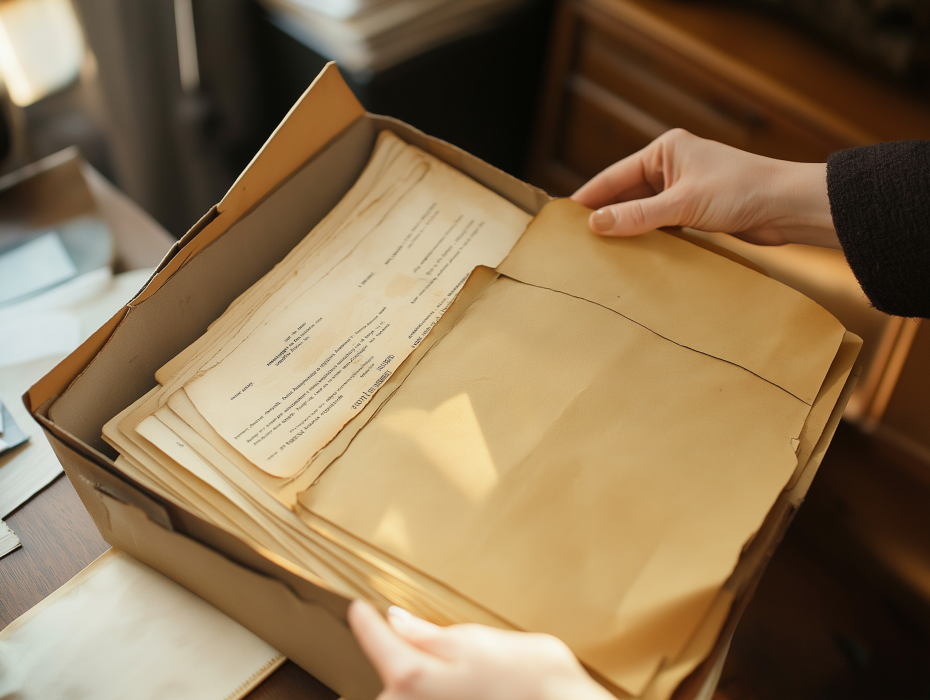
She pulled an old folder from the bottom of her closet. The papers inside were yellowed, the ink faded. There, at the top, was the agency’s phone number, printed in bold. Her thumb hovered over her phone’s keypad before she set it down again. She wasn’t ready—not yet.
Instead, she looked up the agency online. The website was all soft colors and warm words about “mutual consent” and “respecting privacy.” She read about the strict rules for contact, the layers of law between her and any possible truth. Each sentence felt like another door closing in her face.

The rain outside blurred the city lights into a watercolor haze. Mara pulled the quilt even tighter, her mind working. If she couldn’t go through official channels, she’d have to find another way—something quieter, something hers alone. And the moment she thought it, she knew she would follow through.
The next morning, Mara woke with a plan. She could barely taste her coffee, her mind already racing through possible routes to trace the necklace. The adoption agency was a place she had avoided for nearly two decades—but now it might hold the only thread leading to her son’s bright future.
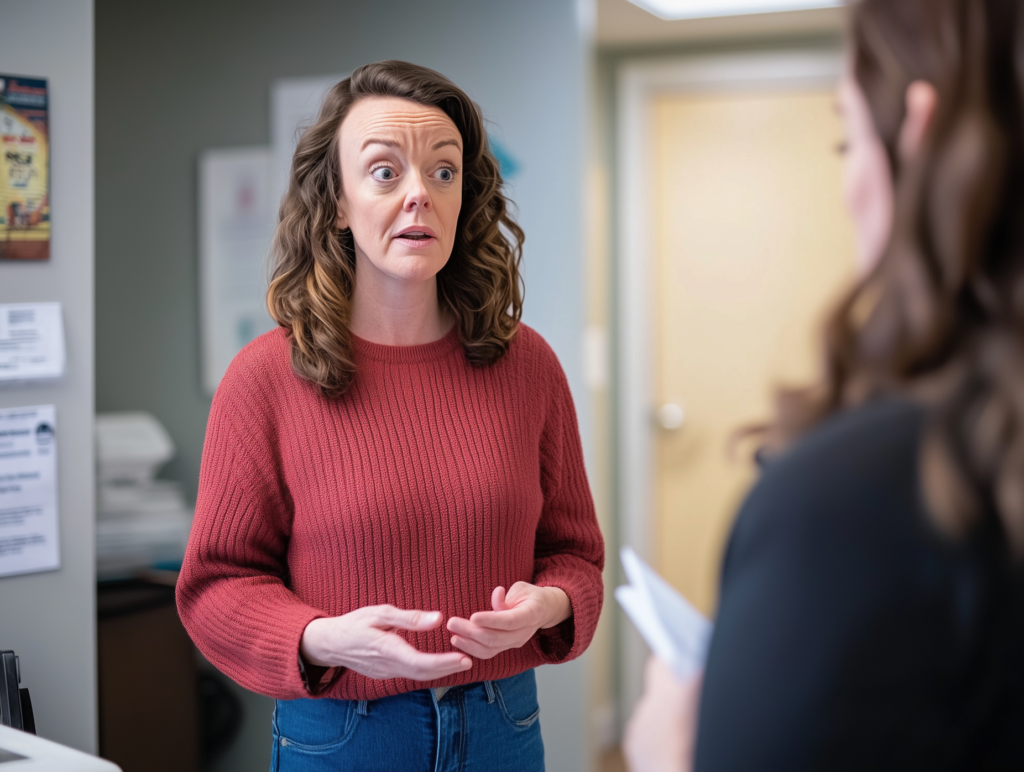
The building looked different, repainted and brighter, but the weight in her chest was the same as the day she’d signed the papers. At the reception desk, she gave her name and explained, haltingly, that she was looking for any updates on her son’s file.
The receptionist’s polite smile dimmed when Mara mentioned the necklace. “We don’t usually track items given to adoptees,” she said. But something in Mara’s voice—perhaps her desperation mixed with conviction—seemed to sway the other. She disappeared into the back, leaving Mara alone with her churning thoughts.

The receptionist returned with a sealed envelope. “We don’t usually do this,” she murmured, sliding it across the counter. Inside was a photocopy of the inventory list from the adoption transfer—one line reading Item: silver pendant with blue stone. Mara’s hands trembled as she traced the words.
A note scrawled in the margins caught her attention: Unclaimed by adoptive family—placed in child’s keepsake box. Her breath caught. The necklace had stayed with him. The possibility was no longer abstract—it was real. She asked if there was any way to learn where that box had gone.
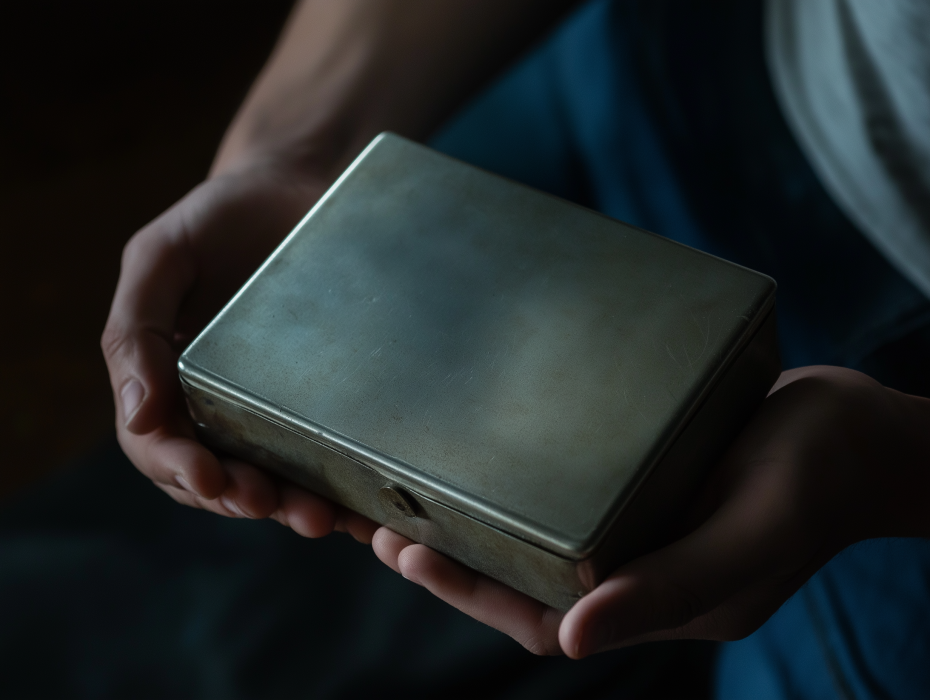
Rules, forms, and confidentiality clauses rose like walls, but Mara pushed. Eventually, a sympathetic caseworker hinted that the keepsake box had been delivered to the boy’s adoptive parents upon his high school graduation. That meant, if she could find them, she could find the necklace and tell him of all that awaited him.
Tracking down the adoptive family wasn’t easy. Public records led her in circles. But Mara was desperate, as only a mother about to lose her son for a second time would be. She was relentless in her pursuit until she found out his adoptive mother’s address.

Her pulse pounded as she took in the details. The family had moved twice in the past decade, but one address had a phone listing. She rehearsed what she’d say, but when someone finally answered, her words tangled. “I’m… looking for someone who might own something that belonged to me…,” she began.
The voice on the other end was cautious, and not without cause. But Mara took a deep breath and narrated her story. She told the woman that even if she did not want his birth mother to reappear like a ghost in their midst, she should at least tell him about the necklace and its value.

Though words failed her, Mara kept saying how she had lost her two most valuable possessions on that fateful day at the adoption agency—one knowingly and the other unknowingly. She told of how she had discovered its worth, serendipitously, through a TV news item.
But it seemed all was not lost. The woman had remained silent all this while, making Mara think of the worst. But now she had a piece of welcome news. Her son had recently had the necklace appraised “just for curiosity,” and the jeweler’s reaction had shocked them both.
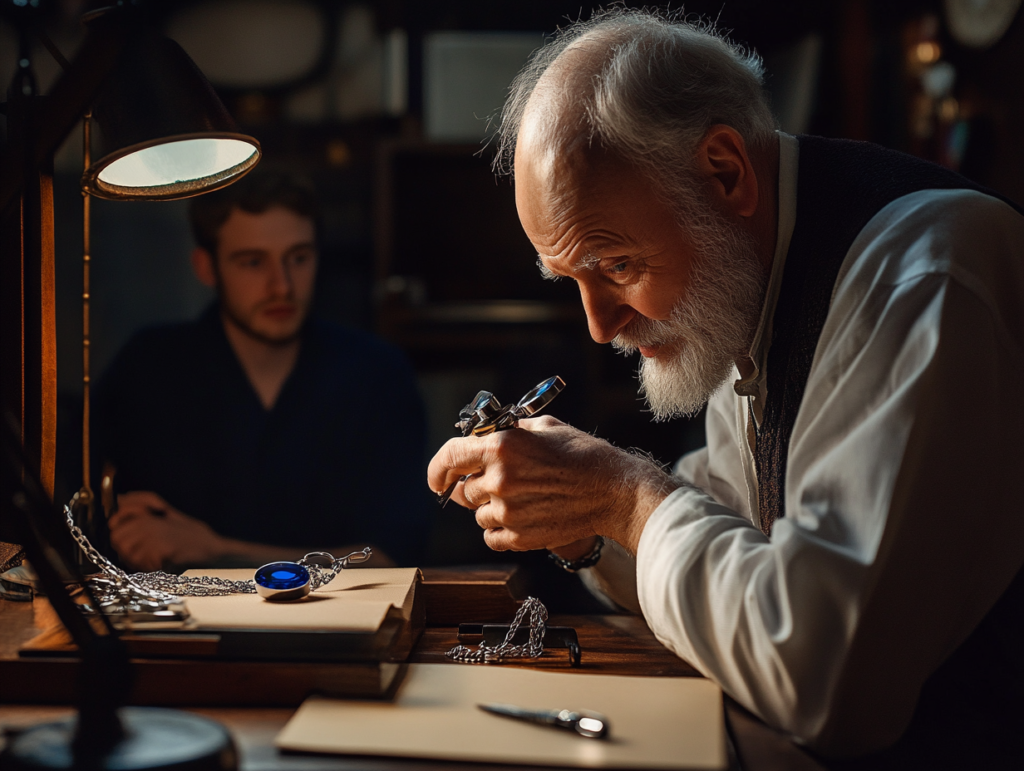
Mara gripped the phone tighter. The adoptive mother said softly, after a long pause, “He’s never asked about his birth mother… but he’s been wondering about that necklace lately. He seemed to be surprised that a woman who owned it could find the heart to give him away. But it all makes sense now.”
Mara’s heart flew into a flutter. Would he agree to meet her? Would he hate her, after meeting her? She didn’t have the strength to say more. But she made his other mother promise that she would only tell him that somebody wanted to discuss the necklace with him.

They arranged a meeting in a neutral place—a quiet café on the edge of town. Mara arrived early, her stomach in knots. Every sound of the door opening made her glance up, expecting, dreading, hoping. She wondered what he’d look like up close, after all this time.
When he finally walked in, tall and broad-shouldered, the world seemed to still. The necklace rested against his chest, the blue stone catching the light. Mara’s throat tightened, but she forced a smile. He approached, cautious curiosity in his eyes. “You wanted to talk about this necklace?” he asked.
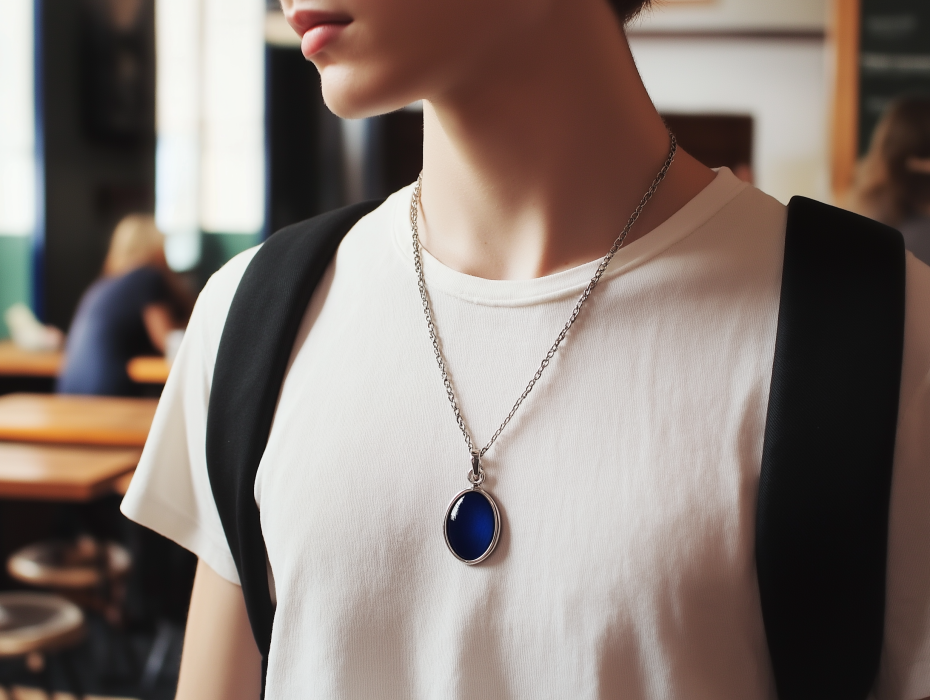
She nodded, her voice low. “It belonged to me… once. I gave it away a long time ago.” His brow furrowed, and she could see the questions rising. She told him about her heirloom, the adoption, the keepsake box—careful not to press too hard, letting him piece things together.
Halfway through, he leaned back, eyes narrowing in thought. “You’re saying… you’re my birth mother?” The words landed like a stone in her chest. She nodded, and the air between them seemed to thrum with something fragile and dangerous—hope, maybe, or the fear of breaking it.
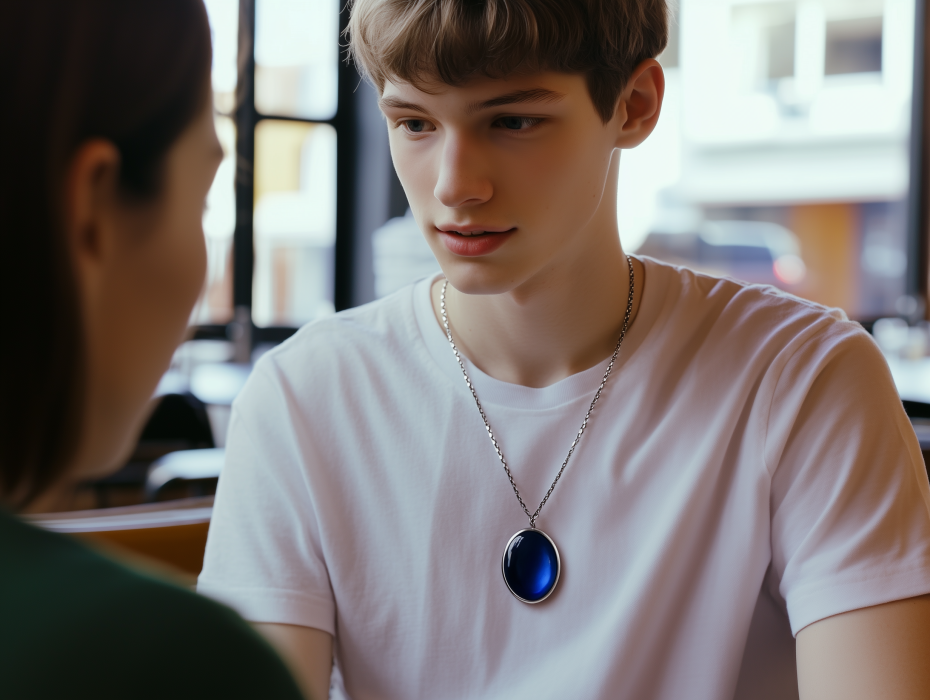
Silence stretched, then he asked, “Why did you give me up?” It was the question she’d rehearsed for years, yet it still burned. She told him about the hospital bills, the tiny apartment, the way she’d thought love wasn’t enough without money. And how wrong she’d been.
Tears stung her eyes as she spoke of the necklace—how she’d thought it was worthless, how she’d hoped it would be a bridge if he ever wanted to find her. “I thought I had nothing to give you,” she whispered. “But I did. I just didn’t know it.” Perhaps nobody in the family did.
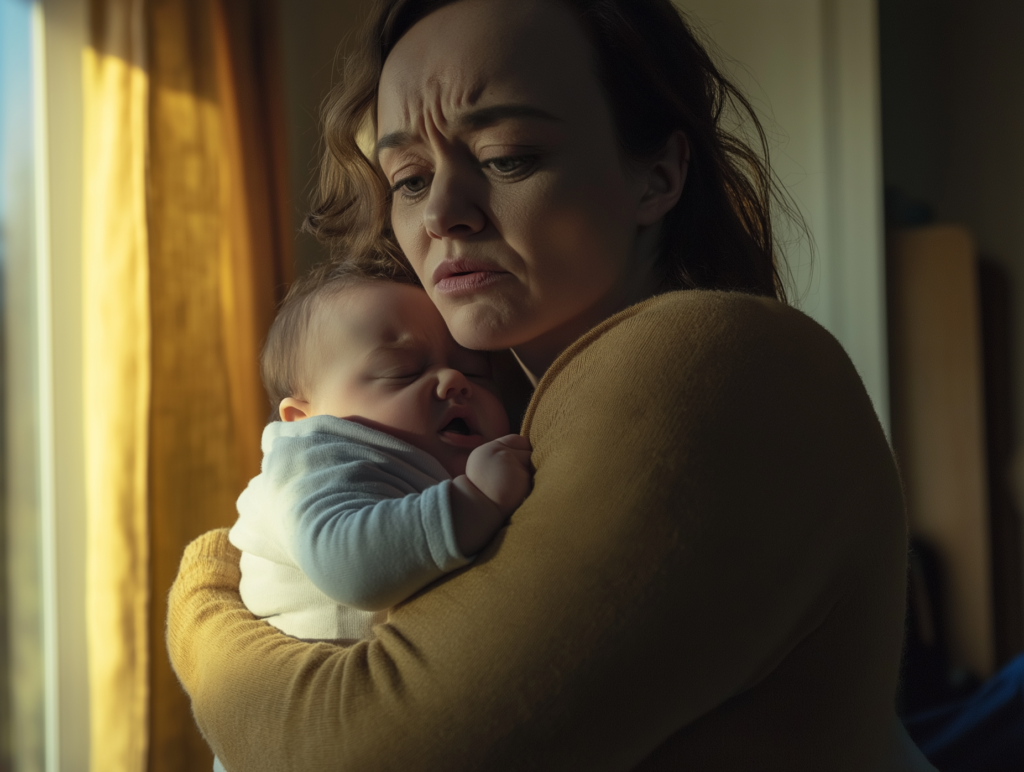
She told him how she’d found out about its value, accidentally. His hand rested on the table, and after a moment’s hesitation, she reached for it. He said quietly, “Even without it, I would have wanted to know you.” The words cracked something open in her, and she felt years of guilt begin to loosen.
They talked for hours—about his childhood, his interests, his plans. He told her how he’d discovered the necklace’s value by accident, and how he’d almost sold it before feeling strangely compelled to keep it. “I guess I know why now,” he said with a small smile.

Mara smiled through her tears. The ache in her chest was still there, but it was softer now, tempered by the warmth of his presence. She realized they couldn’t rewrite the past, nor gain lost time—but they could choose what came next. And maybe, that was enough. To her, it was worth more than all the millions in the world.
